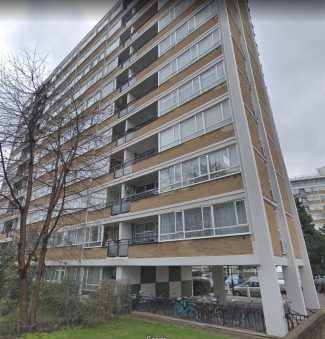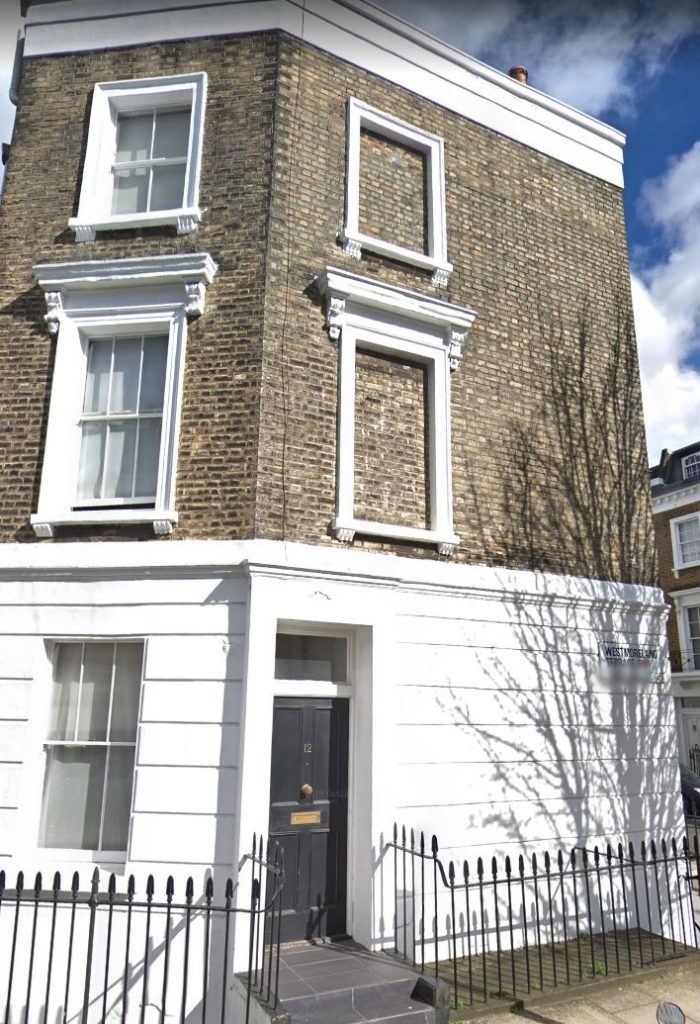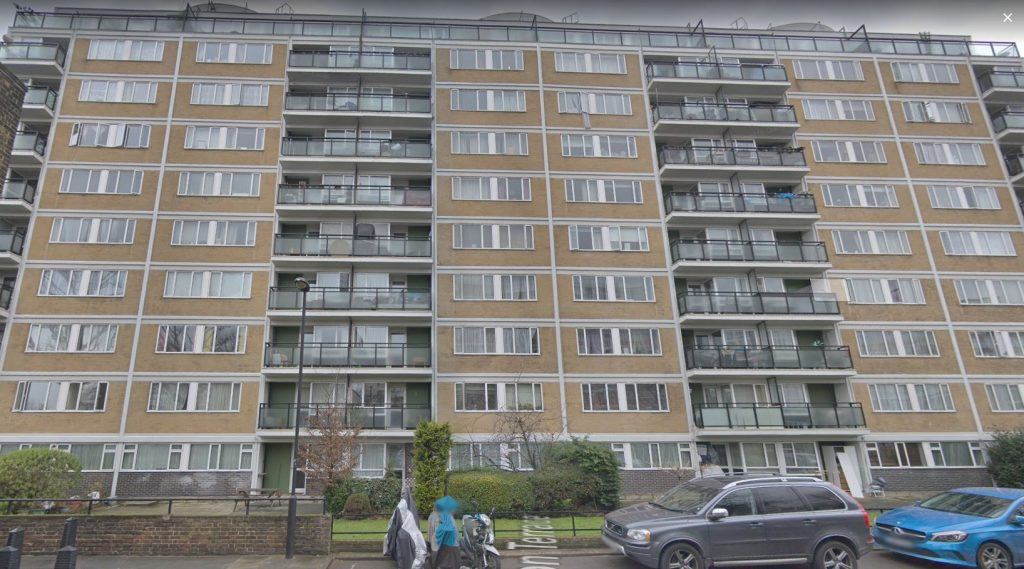
- Remove tax-free money from your house with Lloyds Bank Equity Release
- No need to pay a valuation fee
- 4.15% APR fixed for life
- Some offers have no monthly payments
- Some offers have interest-only payments
- Use the money for anything you like
- Continue to stay in your house
- Often used as a vehicle to reduce tax bills
- If you have an outstanding mortgage, this is no problem.
How much cash can I borrow in 2025?
You can borrow 60% of your home’s value. For example, if your home is valued at £220,000, you can release £154,000.









Is equity release safe?
Equity release can be a safe option for some people, but it is essential to understand the risks associated with this type of loan.
Equity release products are usually only available to those aged 55 or over who own their home and have no current mortgages or debts secured against the property. It’s essential to carefully study the terms of your particular product so you know exactly what you’re signing up for – how much you can borrow, how long the loan lasts, and any additional fees that might be added on.
It would help if you also considered potential tax implications, as any money received from an equity release loan may be classed as income rather than capital gains. Furthermore, as these loans must be repaid after the fixed period has elapsed, it is essential to make sure that you are comfortable with both the short-term and long-term financial implications that come with them before committing yourself further.

Lloyds Bank Equity Release for UK homeowners
A Lloyds Bank Equity Release plan can be very inexpensive if you want a long-term overall cost. Lloyds Bank is one of the great equity release lenders. How much equity you can release depends on your age and health—an independent financial adviser can advise you on this, including any information about early repayment charges.

Does Lloyds Bank offer Equity Release?
Yes, Lloyds Bank does equity release at 2.13% APR.
Do Lloyds Bank Do Equity Release Under 55?
Yes, Lloyds Bank Equity Release under 55 is 2.13% APRC.
People seeking out lump sum lifetime mortgages, lump sum lifetime mortgages, or lifetime mortgages with flexible drawdown cash release are expected to be encountered. However, More to Life, like Legal & General, is keen to see paperwork showing your situation in the form of pension statements.
Equity Release LTV
- 60% home reversion plans Legal & General
- 35% loan to value (LTV) lifetime mortgage with flexible drawdown cash release Stonehaven
- 55% LTV home reversion schemes Equifinance
- 35% loan-to-value (LTV) lifetime mortgage with adjustable drawdown cash release Pepper
- 55% LTV lump sum lifetime mortgages Key Retirement
- 50% loan to value monthly payment lifetime mortgage Norton Finance
- 25% LTV monthly payment lifetime mortgage Central Trust

A lifetime mortgage is a type of equity release product that allows homeowners to access some of the money tied up in their home. It enables borrowers, typically aged 55 and over, to borrow against the value of their property without moving or downsizing. Specific risks are involved with any loan, and prospective borrowers must understand precisely what they’re signing up for before taking out a lifetime mortgage.
This article will explore an equity release lifetime mortgage, how it works, who can take one out, the advantages and disadvantages associated with these loans, and how to decide if this type of loan might be right for you.
What Is An Equity Release Lifetime Mortgage?
An equity release lifetime mortgage is a loan secured against your home, allowing you to ‘liberate’ some of the value built up in your property. The amount you can borrow depends on factors such as your age and the overall value of your property; however, most lenders have set minimum loan values in place. This money can then be used for any purpose, from home improvements or debt consolidation to holidays or supplementing income during retirement.
How Does An Equity Release Lifetime Mortgage Work?
How an equity release lifetime mortgage works is relatively straightforward – for an agreed fixed period (usually 20-25 years), you will pay interest only on the amount borrowed until it has been paid in full. Once this period has elapsed, you or your estate must settle all outstanding payments owed on the loan plus any accrued interest. It is worth noting that if payments are not made within this fixed timeframe, then ownership of the property may be forfeited to the lender.
Who Can Take Out An Equity Release Lifetime Mortgage?
To qualify for an equity release lifetime mortgage, potential applicants must meet specific criteria to prove their suitability for such a loan; this usually involves being aged 55 or over with sufficient value in their property against which a loan can be secured (usually around £70k). In addition to this requirement, borrowers must have no existing mortgages or debt secured against their property if they wish to secure additional finance from a third-party lender. Furthermore, customers should bear in mind that these products tend only to be offered by specialist providers who adhere strictly to Financial Conduct Authority regulations, so do ensure that you seek impartial advice from qualified professionals before committing yourself further.
Advantages And Disadvantages Of Equity Release Lifetime Mortgages
As with any financial product, there are both benefits and drawbacks associated with taking out an equity release lifetime mortgage; those considering taking one out should thoroughly research both sides before making any decisions as although these products can offer significant amounts of money when needed, they should not be taken lightly due to the long term commitment they involve:
Advantages:
- Offers access to large sums of cash quickly when required
- Allows homeowners remain independent while still retaining ownership of their house
- No upfront repayment costs or monthly payments required during the life of the loan
Disadvantages: - Interest rates are generally higher than regular mortgages due to the increased level risk attached them
- Fees charged by specialist lenders need taken account when assessing affordability
- Any outstanding balance, including accrued interest must settled upon expiry agreement
- Payouts reduce inheritance left behind by your loved ones
How To Decide If An Equity Release Lifetime Mortgage Is Right For You?
As mentioned earlier, anyone considering taking out an equity release lifetime mortgage must consider all aspects first before signing anything; there’s no ‘one size fits all’ solution here, so carefully assess whether to pay off existing debts.
Undertaking home renovations or supplementing income during retirement could benefit more from alternative options such as remortgaging or credit cards, etc.: reassess both current financial situation plans to ensure decisions are taken responsibly in the best interests and long-term security of everyone concerned rather than favour convenience and gain at cost potential stability later life…
More to life Drawdown Lifetime Mortgages


NatWest Equity Release and Lifetime Mortgage Options
For those looking to leverage their property in retirement, NatWest Equity Release Interest Rates offer competitive terms that can make equity release more accessible. NatWest also provides the NatWest Lifetime Mortgage Drawdown Scheme, a flexible plan allowing retirees to access funds as needed while maintaining homeownership.
Nationwide Equity Release and Retirement Mortgages
Nationwide provides support for retirees seeking to maximise their property’s potential. The Nationwide Equity Release Advice service helps homeowners make informed decisions about unlocking their home’s value. For those interested in accessing funds throughout retirement, the Nationwide Lifetime Mortgage Reviews highlight customer experiences and provide insight into available options. The Nationwide Retirement Mortgage Reviews further explore tailored retirement mortgage solutions from Nationwide.
Lloyds Bank Lifetime and Equity Release Mortgages
Lloyds Bank offers various mortgage and equity release products designed for retirees. The Lloyds Lifetime Mortgage Drawdown Scheme provides retirees with flexibility, allowing them to access funds when needed. Additionally, the Lloyds Equity Release Drawdown offers a straightforward way to release equity. For broader support, Lloyds Bank offers a range of equity release products, including their Lloyds Bank Lifetime Mortgage Drawdown Scheme, which is tailored for long-term financial stability.
Homeowners planning for retirement can also explore the Lloyds Retirement Mortgage UK, an option designed to make mortgage payments manageable during later years.
HSBC Retirement Mortgages and Equity Release Options
HSBC supports retirees through a range of lifetime mortgage products. The HSBC Lifetime Mortgage Maximum LTV provides a competitive loan-to-value ratio, allowing retirees to maximise the funds available from their property. The HSBC Retirement Mortgage UK is a structured mortgage option for those managing finances in later years. Additionally, HSBC’s Equity Release From Property product is designed to provide financial flexibility while allowing homeowners to stay in their homes.

Disadvantages of Lloyds equity release – does Lloyds bank do equity release?
Lump-sum lifetime mortgages can reduce the value of your estate. A monthly payment lifetime mortgage may impact the ability to claim benefits. You may need to pay a valuation fee, and some products may expose you to changes in interest rates.

Providers for Equity Release
- Key Retirement
- One Family
- Age Concern
- AA equity release
Areas where Lloyds retirement mortgages are popular
- Loftus
- Tenbury Wells
- Ormskirk
- Gillingham
- Yate
- Keighley
- Ashbourne
- Minster
- Mere
- Long Sutton
- Elstree and Borehamwood
- St Mawes
- Braunstone Town
- West Tilbury
- Staines-upon-Thames
- Farnborough
- Long Sutton

Examples of retired small business owners likely to have equity to release
- Artistic creation Bradley Stoke
- Manufacture of other rubber products Dalton Town with Newton
- Gambling and betting activities Witney
Equity Release percentages of your current property value
The more aged you are and the more illnesses you have you are, the more tax-free money you can release.
The mortgage lender will want to know if the property is a Freehold house or a Leasehold flat with a share of freehold and if the resident is an owner-occupier.



Equity Release Lloyds Bank are loans secured on your home

Lloyds Bank Equity Release Reviews
Lloyds Bank offers a variety of equity release options for homeowners aged 55 and older. These products are designed to help you unlock the value of your home, providing access to cash while allowing you to stay in your property. However, it is essential to consider the potential downsides and ensure you have expert advice before making any decisions.
Equity Release Providers and Options for releasing cash
Lloyds Bank is a leading equity release provider offering various products tailored to different needs. Whether you’re interested in a standard interest-only mortgage or an interest only RIO mortgage (Retirement Interest Only), it’s crucial to understand the terms and conditions, including the interest rate and any applicable advice fees. These options can be particularly beneficial for retired homeowners who need access to additional funds but have less time to repay a traditional mortgage.
Understanding the Costs when taking equity release
When considering equity release, it’s essential to account for the associated costs, such as the early repayment charge, legal advice fees, and the impact on your tax position. Additionally, tools like the Mortgage calculator can help you estimate the interest on the loan and the long-term financial implications of releasing equity from your home.
Regional Considerations and Legal Work
The availability and terms of equity release products can vary depending on location. For instance, homeowners in cities like Reading, Glasgow, Sheffield, and Manchester may find different mortgage options from those in Portsmouth, Leeds, or Belfast. It’s advisable to seek expert advice tailored to your region to ensure you make the best decision.
Types of Equity Release Loans
Lloyds Bank offers several types of equity release loans, including the nationwide equity release loan and the nationwide lifetime mortgage. These products allow you to release cash from your home, which can be taken as a lump sum or in smaller, regular payments. Understanding the different loan structures is essential, especially when considering options like the nationwide retirement mortgage or the nationwide retirement interest only products.
Considerations for Older Homeowners
For homeowners aged 60 and older, equity release can provide access to funds for various needs, such as supplementing retirement income or managing unexpected expenses. However, it’s essential to consider how equity release might affect council tax and other financial aspects. Products like the retirement interest only mortgage or later life mortgage are designed with retired homeowners in mind, offering flexible options that consider the unique financial needs of this age group.
Essential Factors to Keep in Mind
Before committing to an equity release plan, it’s crucial to consult with an equity release adviser who can provide expert advice on the best options for your situation. Considerations such as the youngest applicant‘s age, the interest rate, and the overall impact on your estate should all be discussed in detail. Additionally, be aware of the prudential regulation authority‘s role in overseeing these products, ensuring they are safe and suitable for consumers.

Lloyds Bank Lifelong Mortgages
Lloyds Bank offers a range of lifelong mortgage options designed to help homeowners unlock the value of their property. These options include equity release schemes, which allow you to access the equity tied up in your home. It’s essential to explore these options carefully, considering factors like the fixed term and the involvement of the Prudential Regulation Authority in overseeing these products.
Understanding Lifelong Mortgages
A lifelong mortgage, such as an interest-only lifetime mortgage, allows you to borrow a certain amount against the value of your home. The loan is secured against your property, and you only pay interest on it, which can be done through monthly interest payments. The interest rates for these loans are often fixed, providing stability over the long term.
Eligibility and Age Limits
When considering a lifelong mortgage, it’s crucial to understand the age limits set by the lender. Typically, these products are available to those aged 50 or older, with some options extending to those aged 65 and beyond. The loan amount you can access often depends on your age and the value of your property.
Costs and Fees
Various costs are associated with lifelong mortgages, including valuation fees, arrangement fees, and other charges that may apply. It’s essential to factor in these costs when calculating the overall affordability of the mortgage. Tools like the nationwide equity release calculator and nationwide mortgage calculators can help you get a clearer picture of the potential expenses and benefits.
Finding the Right Plan
Choosing the right lifelong mortgage plan involves careful consideration of your financial situation. Products like RIO mortgages (Retirement Interest Only) and traditional mortgages have pros and cons. A qualified adviser can offer impartial financial advice to help you determine which option best suits your needs. Additionally, checking a product’s nationwide equity release safe status can provide extra peace of mind.
Repayments and Interest Rates
With a lifelong mortgage, you may only need to pay interest on the loan, resulting in lower monthly repayments than other mortgage types. These monthly repayments are influenced by the fixed interest rate set at the start of the loan. It’s essential to consider the long-term impact of these payments on your retirement income and overall financial health.
Additional Features
Many lifelong mortgages come with flexible features that allow you to tailor the loan to your needs. For example, some products offer the option of making additional payments to reduce the overall loan balance. Others may include a pension credit element to help supplement your income. Reviewing a personalised illustration from your lender can help you understand these features in detail.
Alternative Options
For those with little or no mortgage remaining on their property, equity release schemes like those offered by Lloyds Bank can be a viable way to access funds. However, it’s also worth exploring alternatives such as downsizing or consulting a financial adviser for a comprehensive view of your options.
Important Considerations
Before committing to a lifelong mortgage, conducting thorough affordability checks and understanding the implications for your future financial planning is essential. The role of a qualified adviser is crucial in navigating the complex landscape of lifelong mortgages and ensuring that the chosen product aligns with your long-term goals.

Hard-to-mortgage property variants can include properties during construction or pre-construction, entirely tenanted properties, right–to–buy properties in Scotland where the customer offers only part of the title as security for the loan, and properties with leased solar panels.
Appealing retirement finance offerings include Lloyds Bank remortgages for people over 50, Barclays Bank equity release plans, Post Office retirement interest-only mortgages, Legal and General mortgages for pensioners, and Nationwide BS RIO mortgages.
Hard-to-mortgage property variants include eco-houses and modern construction methods, properties with externally applied insulation to the walls after construction, properties constructed or converted within the past 10 years, freehold/feuhold flats (Scotland only), and basement or lower ground-floor flats with level access to private or communal garden space.
Some of the most common loan-to-value ratios for TSB pensioner mortgages for people over 70, Barclays Bank interest-only mortgages for over 60s near London, NatWest interest-only lifetime mortgages for over 70s, Legal & General mortgages for 60-plus pensioners, Bank of Scotland interest-only mortgages for people over 70, and Nationwide mortgages for 60-year-olds are 45%, 60%, and 65%.
Tough-to-finance property titles can include grade ll Listed houses (grade C in Scotland and B2 in Northern Ireland), properties with a large number/scale of outbuildings, grades l and ll* Listed Buildings in England & Wales (Grades A and B in Scotland; A, B+ and B1 in Northern Ireland), properties that have solar farms or a large number of wind turbines on the land and properties with mobile phone masts which are within influencing distance of the house.
Tough-to-mortgage property titles include properties built on contaminated land, properties close to mining works, areas of landfill, areas of recent flooding or subsidence, properties with boundary disputes or where planning applications have not been applied correctly, asbestos construction, and concrete panel houses.
How much can I release?
You can borrow 65% of your property’s valuation. For example, if your house is worth £260,000, you can release £156,000.

Equity Release Under 55
Releasing Equity On My House
Lloyds Bank Equity Release Rates
Lloyds Bank offers various options for homeowners considering equity release. These options can help you access the value of your home while continuing to live in it. Before making a decision, it’s essential to understand the different types of equity release and their associated costs and benefits.
Eligibility and Age Considerations
Equity release is typically available for homeowners aged 55 and over, with some products starting at 45. For those over 75, equity release may still be an option, though it is often considered a last resort due to the long-term financial implications and lifetime commitment involved. It’s crucial to consult with equity release advisers to fully understand the lending criteria and how your age might affect the loan terms.
Understanding Equity Release Rates
The rates for equity release products, such as lifetime mortgages, can vary depending on several factors, including the mortgage term, the amount you wish to borrow, and your age. Lloyds Bank provides an equity release calculator to help you estimate your potential loan amount and the associated equity release rates. These rates can impact the amount of capital repayments and the overall cost of the loan.
Costs and Fees
When considering equity release, you should be aware of various fees, including the advice fee charged by your financial advisor and other potential costs like early repayment charges if you choose to repay the loan earlier than planned. Additionally, there may be a cost for securing the loan, which is secured against your home.
Alternatives to Equity Release
While equity release can be a valuable tool, it’s not always the better option for everyone. Alternatives such as downsizing to a cheaper property or considering other equity release alternatives should also be explored. Reviewing all your options before proceeding is essential for homeowners with bad credit or those in an individual voluntary arrangement.
Equity Release for Older Homeowners
Lloyds Bank’s equity release products are designed to cater to the needs of older homeowners, particularly those over 65. The equity release funds can cover various expenses, from home improvements to care costs. Depending on the agreement’s terms, taking an initial lump sum and accessing additional funds later is possible.
Risks and Considerations
Equity release involves several risks, including the possibility that the amount owed could exceed the value of your property if house prices fall. However, products with a negative equity guarantee ensure you will never owe more than your main residence is worth. The Prudential Regulatory Authority oversees these guarantees, offering some protection to borrowers.
Using an Equity Release Calculator
Lloyds Bank provides a free calculator to help you understand how much you could borrow based on your property’s value and age. By entering your personal details into the equity release calculator, you can get a clearer idea of the potential tax-free lump sum you could release. This tool also considers your existing debts and previous mortgage obligations.
Before deciding on an equity release product, please consult a qualified financial advisor to ensure it aligns with your financial goals. The equity release council can also provide additional guidance, ensuring your equity release plan is regulated and meets your needs.

Does Lloyds Bank Offer Equity Release?
Many homeowners look to Lloyds Bank for options when considering whether to release equity from their homes. Releasing equity can be a valuable way to access funds for various needs, particularly for those over 55 who are looking to supplement their retirement income.
Eligibility and Age Considerations
For those considering equity release, the minimum age typically starts at over 60, with some products available from age 65. The maximum age for applicants can vary, and it’s important to discuss this with a mortgage adviser to understand the specific terms and conditions that apply. For those aged 75 and above, understanding the impact on your financial situation is crucial before proceeding.
Costs and Fees
Opting for equity release involves various costs, including application and legal fees. Additionally, early repayment charges may apply if you decide to repay the equity release earlier than planned. It’s also important to know the potential impact on means tested benefits and other financial commitments.
Equity Release Products and Options
Like many other equity release providers, Lloyds Bank offers a range of products designed to meet different needs. These include lifetime mortgages, which are popular among older homeowners. The bank’s products often come with a negative equity guarantee, ensuring that you will never owe more than the value of your home.
For those who may have a current mortgage or are considering a new property, it’s essential to explore whether equity release is the right product for you. Additionally, the impact on your estate and potential long term care costs should be carefully considered.
Comparing Nationwide and Lloyds Equity Release
When comparing Lloyds Bank to other providers such as Nationwide, various factors should be considered, including nationwide lifetime mortgage rates, equity release FAQs, and the terms of nationwide pensioner mortgages. Understanding the differences between standard mortgages and equity release options is critical for making an informed decision.
For those with a poor credit history or the lowest earners in a household, it’s crucial to consider how equity release might impact their financial future. Some equity release products do not require a credit check, which could be attractive, but weighing all the pros and cons is essential.
Equity Release for Joint Applicants
If you are considering equity release as joint applicants, it’s vital to understand how this might affect the terms of your mortgage and the eventual repayment structure. Factors such as property value, potential early repayment charge, and how the equity is divided should be discussed with a financial advisor.
Planning for the Future
When opting for equity release, it’s also essential to consider what happens if you move into long term care or need to downsize to a cheaper property. Lloyds Bank offers various financial options to accommodate such life changes, ensuring you can make the best decision for your future.
Resources like the nationwide equity release review and advice from experts such as Martin Lewis can provide valuable insights for those interested in learning more. Seeking equity release advice from a mortgage adviser can help clarify the complexities and ensure you choose the right product for your needs.

Other products similar to Equity Release Lloyds Bank
- Aviva Lifetime Mortgages tax-free lump sum
- Canada Life Interest Select Gold Flexi types of equity release
- More to life Flexi Choice Voluntary Payment Super Lite
- Lloyds Bank releasing equity
- Lloyds Bank Lifetime Mortgage with no monthly repayments
- UK property Equity Release Lloyds Bank
- Lloyds Bank Equity Release Schemes
- TSB Equity Release product
- NatWest Equity Release loan
- More to life Flexi Choice Voluntary Payment Super Lite
Other lenders apart from Lloyds Bank Equity Release
- Bridgewater Lifetime Mortgage
- Liverpool Victoria LV Equity Release mortgage
- Pure Retirement Classic Drawdown Lite Plan
- More to Life Capital Choice Plus Plan
- Bridgewater Equity Release Schemes
- Canada Life Equity Release Plans
- L&G Legal & General Flexible Max Scheme
- More to Life Capital Choice Plan
- NatWest Equity Release Schemes
- Age Partnership Equity Release mortgages
Direct contact details for Lloyds Bank
Lloyds Bank plc. Registered Office: 25 Gresham Street, London EC2V 7HN. Registered in England and Wales no. 2065
Lloyds Bank plc is authorized by the Prudential Regulation Authority and regulated by the Financial Conduct Authority and the Prudential Regulation Authority under registration number 119278.
Lloyds Bank plc registered office:
25 Gresham Street,
London EC2V 7HN.
Registered in England and Wales No. 2065.
youtube.com/user/lloydsbankonline
Does Lloyds Bank offer mortgages up to 85?
Yes, Lloyds Bank does mortgages up to 85 at 1.8% MER. Lloyds Bank mortgages up to 85 have a loan-to-value (ltv) of 65%.
Does Lloyds Bank lend later life loans to people under 55?
Yes, Lloyds Bank later life lending Under 55 is 2.03% MER.
Does Lloyds Bank offer mortgages over 70?
Yes, Lloyds Bank mortgages over 70 are 2.26% APRC.
Can an equity release adviser help me pay off my existing mortgage and provide independent legal advice?
An equity release adviser can help you pay off your mortgage and provide independent legal advice. Equity release is a financial product designed to allow homeowners aged 55 or over to access the equity in their homes without moving.
When considering equity release, you must seek the advice of an independent financial advisor qualified to provide impartial advice about releasing money from your property. They can discuss the options and provide professional guidance as you consider the most suitable situation.
Your equity release adviser can also assist with any paperwork to pay off your existing mortgage so you are aware of all fees, restrictions, and implications associated with the process before committing to any agreement. They may also be able to provide independent legal advice about any contracts or documents linked with the transaction.
Does equity release affect benefits?
Equity release can impact certain benefits that you may be eligible to receive. Generally speaking, when equity is released from your property, it may reduce the amount of any means-tested state benefits you can claim, so it is essential to consider this before signing up.
The extent to which releasing equity would affect your benefits would depend on various factors, such as how much equity you are releasing and your individual circumstances. It is always advisable to speak with a qualified financial advisor for more information about how releasing equity could affect any state benefits you currently receive or whether you could still be eligible for them.
How much of the full market value of my home can I borrow?
The amount of equity you can borrow as part of an equity release scheme will depend on several factors, including your age and property value. Generally speaking, the maximum you can borrow is between 20-50% of the full market value of your home.
However, it is important to remember that with some products, the amount you can borrow may be revised downwards if additional fees or restrictions are associated with your scheme. So, it is always best to speak with a qualified financial advisor who can provide more tailored advice about the best option.
Do I need impartial financial advice before getting an equity release scheme and what is the equity release cost?
It is highly recommended that you seek independent and impartial financial advice before taking out an equity release scheme, as it can be complicated.
A qualified financial advisor can provide tailored advice on the suitability of an equity release product for your individual circumstances and help you understand any potential risks or costs associated with it.
The cost of an equity release scheme will depend on the provider and product chosen. Generally speaking, several fees may be attached to different products—such as an arrangement fee, valuation fee, and legal fees—which can add up to a few thousand pounds. It is also important to remember that some providers impose additional charges if the plan needs to be paid off early or changed later.
What type of equity release do I need for my personal circumstances?
Deciding which equity release product is the right option for you will depend on your personal circumstances, the value of your property, and any existing mortgage arrangements. It is best to speak with a qualified financial advisor who can assess your needs and requirements and recommend the most suitable product.
Generally speaking, two main types of equity release are available: a home reversion plan and a lifetime mortgage. Home reversion plans involve selling part or all of your property in return for either a lump sum payment or regular income payments, while lifetime mortgages allow you to borrow money against the value of your property without having to move out or sell it.
If I want to borrow money and get smaller lump sums what are the costs involved in a main residence equity release scheme?
It is essential to be aware that several costs may be associated with taking out a main residence equity release scheme. These include an arrangement fee, which covers the administration and set-up of the plan, as well as any legal costs.
There may also be a valuation fee, which the lender charges to assess the value of your property to calculate how much they are willing to lend you. Finally, you may have to pay additional fees if you decide to pay off the plan early or make changes later. You must seek independent advice before making any decisions about taking out an equity release scheme so you know exactly what the costs will be and whether it is suitable for your circumstances.
How do you pay interest on an equity release agreement when you release money with such a big financial commitment?
Equity release agreements usually involve paying interest in one of two ways. First, you may pay the interest on your loan by making regular payments throughout your plan. Alternatively, you may let your interest ‘roll-up’ and be paid at the end of the plan. This roll-up lifetime mortgage involves no monthly payments but will increase the repaid amount. It would help to consider both options before deciding which one is best for you, as this depends on your circumstances.
If I make regular payments after I raise money, is there still an early repayment charge?
Generally speaking, most equity release agreements will include some early repayment charge if you pay off the loan before it is due. This is to cover any potential losses suffered by the lender if they cannot recover their costs thoroughly during the life of the plan. The amount of the charge will vary depending on how much and when you repay but can sometimes be more than 10% so you must seek independent advice regarding your specific circumstances before deciding on an equity release plan.
Does a home reversion scheme wreck my means tested benefits?
Home reversion schemes, like other equity release products, can potentially impact means-tested benefits you may be entitled to receive.
For example, suppose you are receiving pension credit or housing benefits. In that case, it is essential to consider how any lump sum payments and/or additional monthly income might affect your entitlement to such benefits. Additionally, as with all equity release plans, the amount of money released from your home reduces its value; this could also impact any means-tested benefits you may have previously been eligible for. It is, therefore, essential to discuss any potential implications with an independent financial advisor before deciding on a home reversion scheme.
Will my family members benefit from house prices if I borrow to get them on the housing ladder?
Borrowing money to help family members onto the housing ladder can be an excellent way to provide them with a secure home and help them get a foothold in the property market. However, it is essential to consider how house prices might affect your family’s situation in the future, as they could either increase or decrease.
If house prices rise significantly, your family members would benefit; however, if they fall, you may find yourself in a difficult financial position regarding repaying any loans. As such, it is essential that you thoroughly research the current and predicted property market before deciding whether borrowing money for this purpose is the best course of action for your family.
Do you have to pay a regular mortgage off when you die or move into long term residential care?
Whether or not you have to pay a regular mortgage off when you die or move into long-term residential care depends on the terms of your original mortgage agreement and your estate. Generally, if the mortgage is still outstanding when you pass away, then it will be paid from your estate to the lender.
The same applies if you move into long-term residential care; however, the type of loan that you have taken out might impact this. For example, some lenders will allow for additional flexibility should you no longer be able to make payments due to ill health or reduced income. It is, therefore, essential to speak with your lender about their policy in such circumstances and make sure that any arrangements are agreed upon in advance.
Is a RIO mortgage a debt secured against your home?
Yes, a RIO mortgage is a debt secured against your home. A RIO (Retirement Interest Only) mortgage is a type of mortgage tailored to those in retirement that allows applicants to borrow money against the value of their property without the need to make regular income-based repayments.
Instead, the loan would be repaid in full when you either die or move into long-term care. The amount borrowed must be secured against the property, and so you should ensure that you have sufficient equity in your home before taking out such a loan. Additionally, it is important to check that you are eligible for such an agreement to ensure that all of your needs will be met.
Is it wise to borrow money for home improvements so the total value is higher?
Borrowing money for home improvements can be a wise decision in certain circumstances, as it could increase the overall value of your property. However, it is essential to consider how much you intend to borrow and if you can afford the repayments comfortably over the life of the loan.
Additionally, it is essential to factor in other costs associated with any repairs or renovations, such as labour and materials. Before taking out a loan for home improvements, ensure you are comfortable with the short-term and long-term financial implications.
Does Lloyds Bank do mortgages over 75?
Yes, Lloyds Bank mortgages over 75 are 1.94% APR.
Does Lloyds Bank offer later life lending?
Yes, Lloyds Bank later life lending is 2.02% APRC.
What are the current Lloyds Bank rates for retirement mortgages?
Lloyds Bank rates for retirement mortgages are 1.89% MER.
Does Lloyds Bank have favourable reviews for pensioner mortgages?
Yes, Lloyds Bank reviews are tiptop for pensioner mortgages.
Does a Lloyds Bank retirement interest only mortgage advisor charge a large fee?
No, Lloyds Bank retirement interest only mortgage advisors are free.
Does Lloyds Bank do mortgages over 60?
Yes, Lloyds Bank mortgages over 60 are 2.08% APR.
Does Lloyds Bank do mortgages over 55?
Yes, Lloyds Bank mortgages over 55 are 2.05% MER.
If you need to call us from abroad, you can call us on 01733347007. Not all Telephone Banking services are available 24 hours a day, seven days a week. Please speak to an adviser for more information.
Calls may be monitored or recorded.
Lloyds Bank plc and Bank of Scotland plc (members of Lloyds Banking Group) are authorised by the Prudential Regulation Authority and regulated by the Financial Conduct Authority and the Prudential Regulation Authority. Authorisation can be checked on the Financial Services Register at www.fca.org.uk
Call Finance Hunt in Putney, London, on
02074953523
Is equity release a good idea?
Yes, it can be for some people that really need the money.
What is the downside to equity release?
The roll-up interest that’s added onto the loan.
Is equity release a con?
No, it’s not a con it’s a loan that has interest like any loan.
What happens when you take equity release?
You fill in paperwork, get a valuation on your home, and then you get the money sent to your bank account.
What is equity release?
It’s a way to get tax-free cash out of your home.
How does equity release work?
Instead of remortgaging to release equity, you can get a loan without a monthly payment subject to your home and your age.
Do you need to sell your home with an equity release?
No, there is no need for you to sell your home.
Are there payments to make with equity release?
No, an equity release plan has no monthly repayments.
What is the Equity Release Council?
Its a body that some equity release lenders join that has rules.
Important information for existing equity release plan holders experiencing financial difficulties
If you have financial difficulties you might be able to get cash and get more equity release.